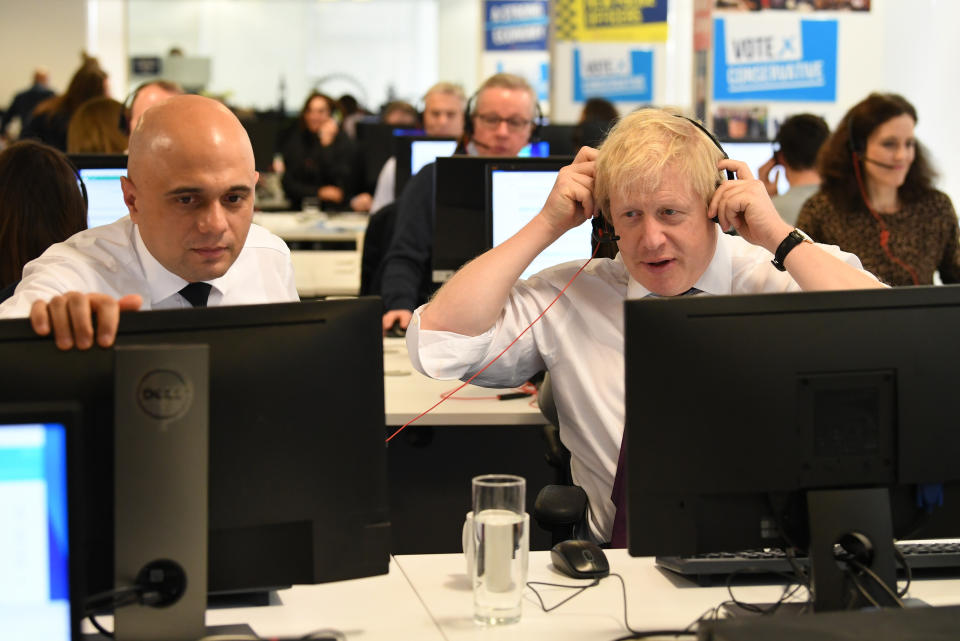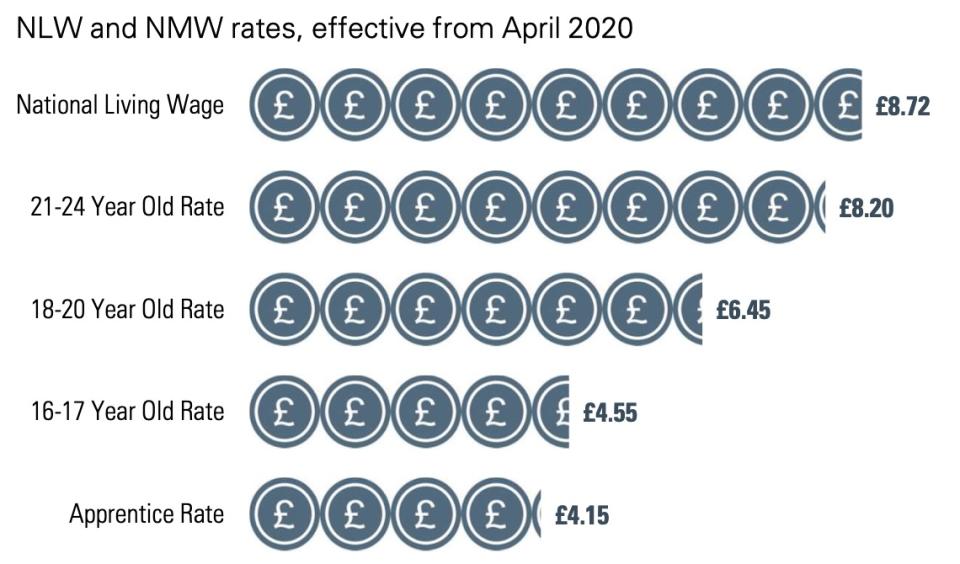Businesses wince at minimum wage hike in Britain's stagnant economy

Britain’s lowest-paid workers will welcome a 6.2% rise in the minimum wage next April, but the plans have sparked fears of rising prices, workloads, and risks of automation and lower employment.
Unions called the planned increase to £8.72-per-hour “long overdue,” helping many households living in poverty after a decade of weak pay growth and squeezed living standards.
But business leaders gave the announcement a far more lukewarm reaction, with increased costs dampening their brighter mood since prime minister Boris Johnson’s election victory earlier this month.
It could mark a headache for many firms as warning signs grow over the UK economy, with figures this month showing economic growth grinding to a halt and private sector activity hitting a 41-month low.
Firms will ‘find this rise challenging’
Matthew Fell, chief UK policy director at the Confederation of British Industry, warned the size and pace of future increases must not put Britain’s recent employment boom at risk.
“Whilst it’s the right thing to do and many workers will feel the benefit, some firms will find this rise challenging in the face of tough economic conditions,” he said.
READ MORE: Boris Johnson vows to raise minimum wage four times faster than inflation
Hannah Essex, co-executive director at the British Chambers of Commerce, added: “Businesses want to pay their staff a good wage. But many have struggled with increased costs in a time of great economic uncertainty.”
She also said it could eat into investment and training budgets and put pressure on cashflow.
Craig Beaumont, the Federation of Small Business’ director of external affairs, issued a similar warning in starker terms.
“There’s always a danger of being self-defeating in this space: Wage increases aren’t much good to workers if prices rise, jobs are lost and there’s no impact on productivity because employers are forced to cut back on investing in tech, training and equipment,” he said.
Increased risks of automation and higher workloads

But a report published alongside the announcement on Tuesday by the Low Pay Commission (LPC), which advises the government on minimum wage rates, said increases had different impacts on different kinds of firm.
It said smaller firms were most likely to delay or scale down investment to fund higher employment costs.
Meanwhile it said large employers “told us they were looking to invest in automation and training as a result,” with the implications “not clear” for employment levels in future.
Most employers told the LPC productivity had to increase to make pay rises sustainable, with surveys indicating higher staff workloads rather than increased investment in technology or training.
READ MORE: UK employment hits record high despite alarm bells over health of the economy
The LPC also sounded the alarm over “work intensification,” noting: “Employers reported expecting more flexibility and effort from staff, adding tasks to job roles and raising performance standards.
“Workers told us of the increased pressure they have come under from such changes.”
It noted a growing number of employers also saying they would increase prices to cover costs, the main response alongside reduced profits.
But it said many employers, particularly those reliant on government contracts, were unable to pass on costs. “Adult social care and childcare are in this group, with stakeholders telling us the sectors’ funding crises had not improved,” the report added.
How high wages can go without hitting jobs

Torsten Bell, chief executive of the Resolution Foundation think tank, said increases were “welcome but not risk-free” in potentially threatening employment in future.
He urged caution over the rise, which marks the biggest ever cash increase in the two decades since the pay floor was introduced.
“We need to closely monitor evidence because we don't know how high minimum wages can go,” he said.
A report by the foundation earlier this year warned increases beyond an as-yet unknown point could leave the government with the “undesirable choice” of slashing the minimum wage or accepting job losses in future.
READ MORE: The areas of Britain where people earn the most
A series of studies commissioned by the LPC have shown “little evidence” past increases have cost jobs, with employment levels rising among workers most likely to be low-paid.
But Bell suggested the increased pace of current wage growth took Britain into uncharted territory, moving from the middle to the top of global league tables.
He called the government’s plans to hike the minimum wage to two-thirds of median incomes over the next few years a “huge change.”
He added: “Minimum wage is a huge policy success of the last 20 years. But that doesn't mean we should take lightly the task of navigating further increases, or ask a minimum wage to solve the national disgrace of working poverty on its own.”

 Yahoo Finance
Yahoo Finance 